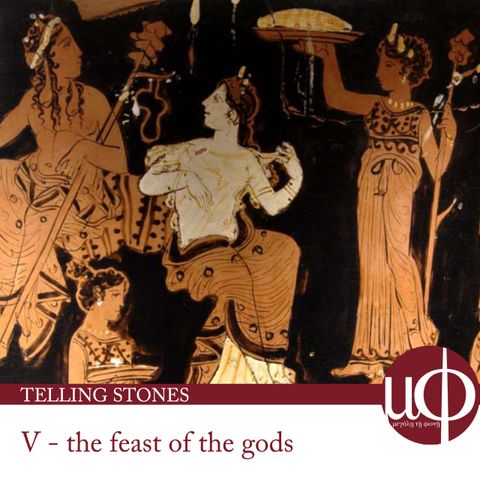Telling Stones - episode 5 - the feast of the gods

Sign up for free
Listen to this episode and many more. Enjoy the best podcasts on Spreaker!
Download and listen anywhere
Download your favorite episodes and enjoy them, wherever you are! Sign up or log in now to access offline listening.
Description
Greek afterlife was not all about wailing and lamenting. Some dead (at first some heroes, then some ‘just men’) had the luck of arriving to the ‘Isles of the Blessed’,...
show moreDetails of the inscription: GVI 1765 = SGO 05/01/64.
The passages quoted are Homer, “Odyssey” 4.562 ff. (transl. Murray revised), Hesiod, “Works and Days”, ll. 170 ff. (transl. Most), Pindar, “Olympics” 2.62 ff. (transl. Race), Aristophanes, “Frogs”, ll. 448 ff. (transl. Henderson). The translation of the inscription is by R. Hunter (‘The measure of Homer’, Cambridge 2018, p. 49).
You can direct any feedback, queries and comments related to the podcast to associazioneglaucopis@gmail.com (please use the subject line 'podcast')
Information
| Author | Glaucopis |
| Organization | Glaucopis |
| Website | - |
| Tags |
Copyright 2024 - Spreaker Inc. an iHeartMedia Company
